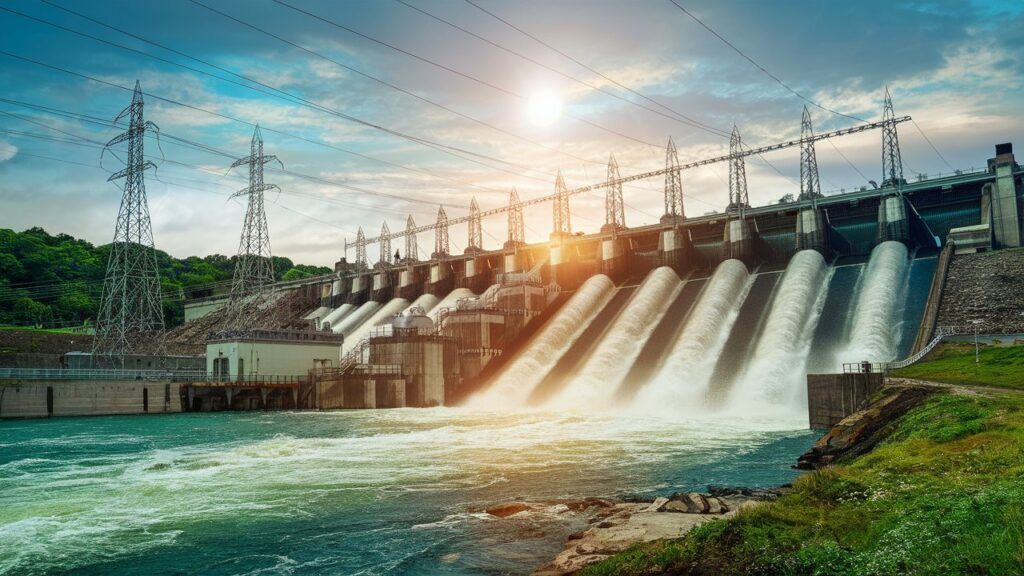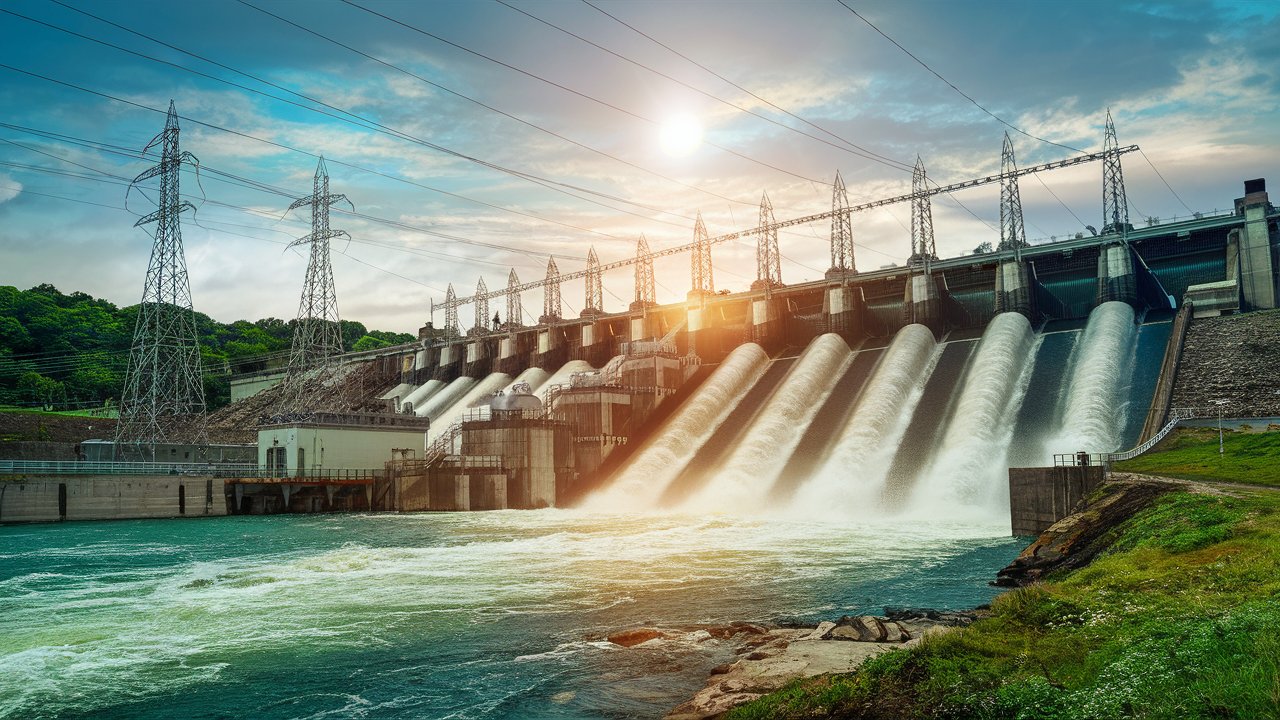
Introduction
Hydroelectric vitality is one of the most seasoned and most dependable shapes of renewable vitality. But what precisely is hydroelectric vitality? Basically put, it’s the control inferred from the development of water. It’s a clean, green, and maintainable way to produce power, making it fantastically vital in today’s world where lessening carbon impressions is a worldwide priority.
History of Hydroelectric Energy
Early Beginnings
The utilize of water for mechanical control dates back thousands of a long time. The antiquated Greeks utilized water wheels to pound wheat into flour over 2,000 a long time back. This concept of saddling water control was the antecedent to present day hydroelectric energy.
Major Milestones
The to begin with hydroelectric control plant was built at Niagara Falls in 1879, a critical turning point that stamped the starting of hydroelectric control as we know it nowadays. Since at that point, there have been various headways, making hydroelectric vitality a foundation of renewable power.
How Hydroelectric Vitality Works
Basic Principles
At its center, hydroelectric control is produced by the development of water through turbines. The streaming water turns the edges of a turbine, which in turn turns a generator to deliver electricity.
Types of Hydroelectric Plants
Run-of-the-River: These plants utilize the common stream of water without critical storage.
Reservoir (Capacity): These plants store water in a supply, which can be discharged as required to produce electricity.
Pumped Capacity: These plants pump water to a higher rise amid moo request and discharge it amid crest request to produce electricity.
Global Affect of Hydroelectric Energy
Worldwide Utilization Statistics
Hydroelectric vitality accounts for almost 16% of the world’s power generation and over 70% of all renewable power. This broad utilization underscores its unwavering quality and productivity as an vitality source.
Leading Nations in Hydroelectric Production
China, Brazil, Canada, the Joined together States, and Russia are the best makers of hydroelectric control, with China driving by a critical edge due to its enormous Three Gorges Dam.
Environmental Benefits
Renewable and Feasible Source
Hydroelectric vitality is renewable since it employments the Earth’s water cycle to create power. This implies it doesn’t exhaust characteristic assets and can be supported indefinitely.
Reducing Carbon Footprint
By supplanting fossil powers, hydroelectric vitality makes a difference decrease nursery gas emanations. Hydropower plants radiate exceptionally moo levels of nursery gasses compared to coal or characteristic gas plants.
Innovative Advances in Hydroelectric Energy
Advanced Turbines
Modern turbines are planned to be more effective and naturally inviting, decreasing the affect on oceanic life whereas maximizing vitality production.
Pumped Storage
Pumped capacity offices act like huge batteries, putting away vitality for utilize amid top request periods. This innovation improves network solidness and efficiency.
Hydroelectric Vitality and Wildlife
Impact on Oceanic Life
While hydroelectric dams can influence nearby environments, counting angle populaces, numerous plants have angle steps and other instruments to offer assistance sea-going life explore the obstacles.
Conservation Efforts
Conservationists and engineers work together to minimize natural impacts, guaranteeing that hydroelectric ventures are as wildlife-friendly as possible.
Economic Benefits
Job Creation
The development, upkeep, and operation of hydroelectric plants make various employments. From engineers to natural researchers, the hydroelectric industry offers differing business opportunities.
Cost-Effectiveness
Once built, hydroelectric plants have moo operational costs and long life expectancies, making them a cost-effective arrangement for maintainable energy.
Famous Hydroelectric Dams
Hoover Dam
Located on the border between Arizona and Nevada, the Hoover Dam is an building wonder and a image of American ingenuity.
Three Gorges Dam
The biggest hydroelectric dam in the world, the Three Gorges Dam in China, grandstands the enormous potential of hydroelectric power.
Hydroelectric Vitality in Pop Culture
Movies and Documentaries
Films like “The Waterway” and documentaries like “Perdition” highlight both the benefits and challenges of hydroelectric energy.
Books and Articles
Numerous books and articles investigate the history, innovation, and affect of hydroelectric control, contributing to open mindfulness and education.
Challenges Confronting Hydroelectric Energy
Environmental Concerns
Despite its benefits, hydroelectric control can disturb neighborhood biological systems and uproot communities. Adjusting vitality needs with natural conservation is an continuous challenge.
Economic and Social Issues
The development of huge dams can be costly and disputable, regularly starting talks about over arrive utilize, water rights, and social impacts.
Future of Hydroelectric Energy
Emerging Trends
Innovations like submerged turbines and moved forward capacity arrangements are set to revolutionize the hydroelectric industry.
Potential Innovations
Future progressions seem incorporate more productive turbines, way better vitality capacity frameworks, and diminished natural impacts, making hydroelectric control indeed more sustainable.
Case Studies
Successful Projects
Projects like the Itaipu Dam in Brazil and Paraguay appear how hydroelectric control can meet noteworthy vitality needs sustainably.
Lessons Learned
From past ventures, we’ve learned the significance of natural affect appraisals and community association in hydroelectric projects.
Myths and Misconceptions
Common Misunderstandings
Many individuals accept hydroelectric vitality is hurtful to the environment. Whereas it can have impacts, cutting edge innovation and hones significantly relieve these issues.
Clarifying Facts
Hydroelectric control is one of the cleanest and most dependable shapes of vitality, with benefits distant exceeding the challenges when overseen properly.
Conclusion
Hydroelectric vitality is a capable and maintainable arrangement for our vitality needs. From its captivating history to its promising future, hydroelectric control offers various benefits whereas posturing a few challenges. With proceeded development and cautious administration, it will stay a imperative portion of our renewable vitality scene.




